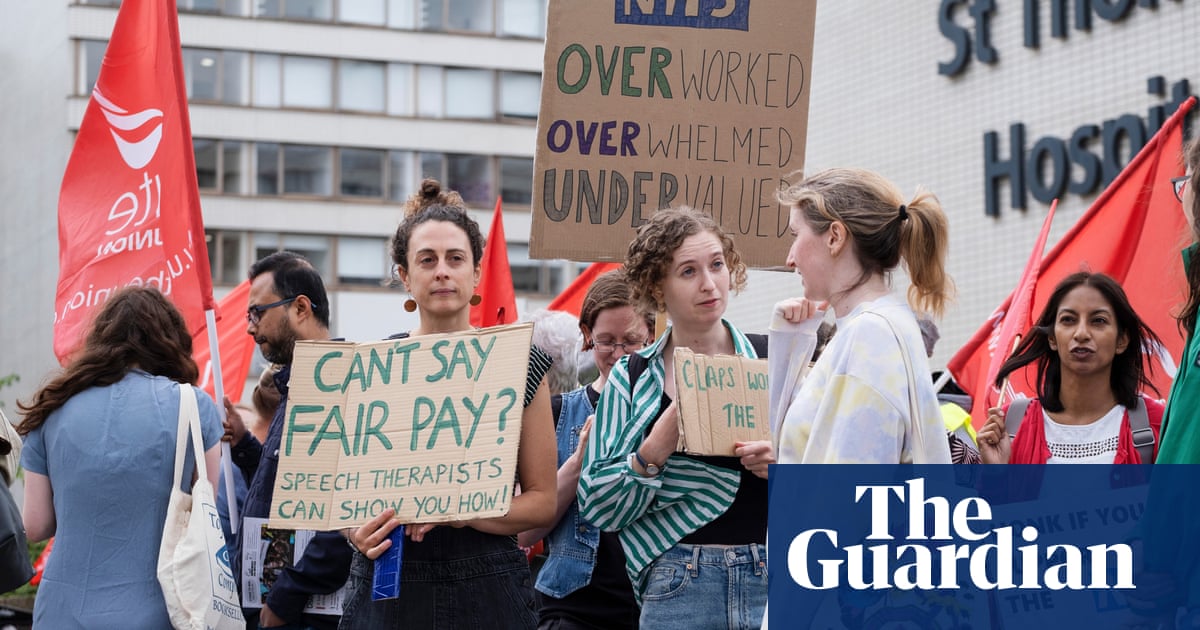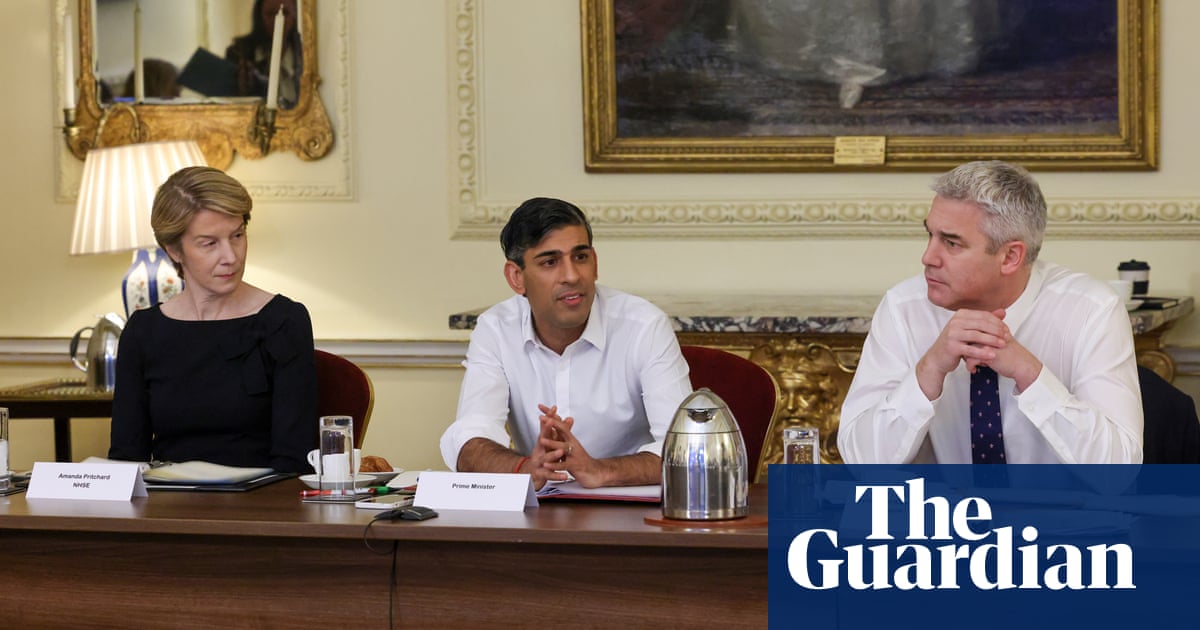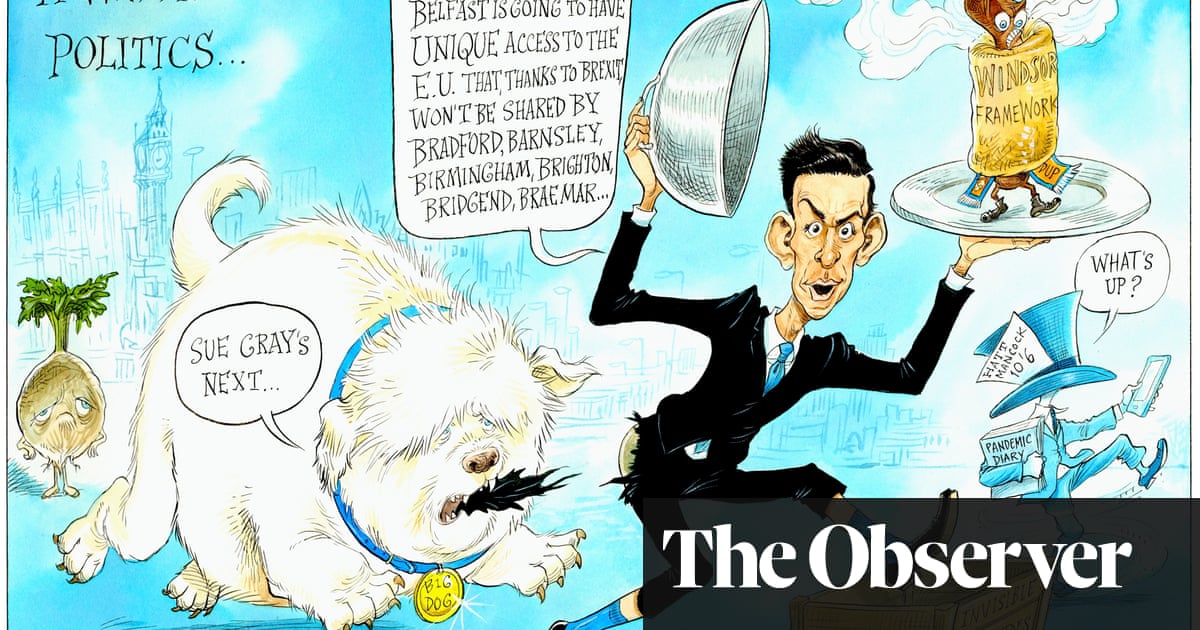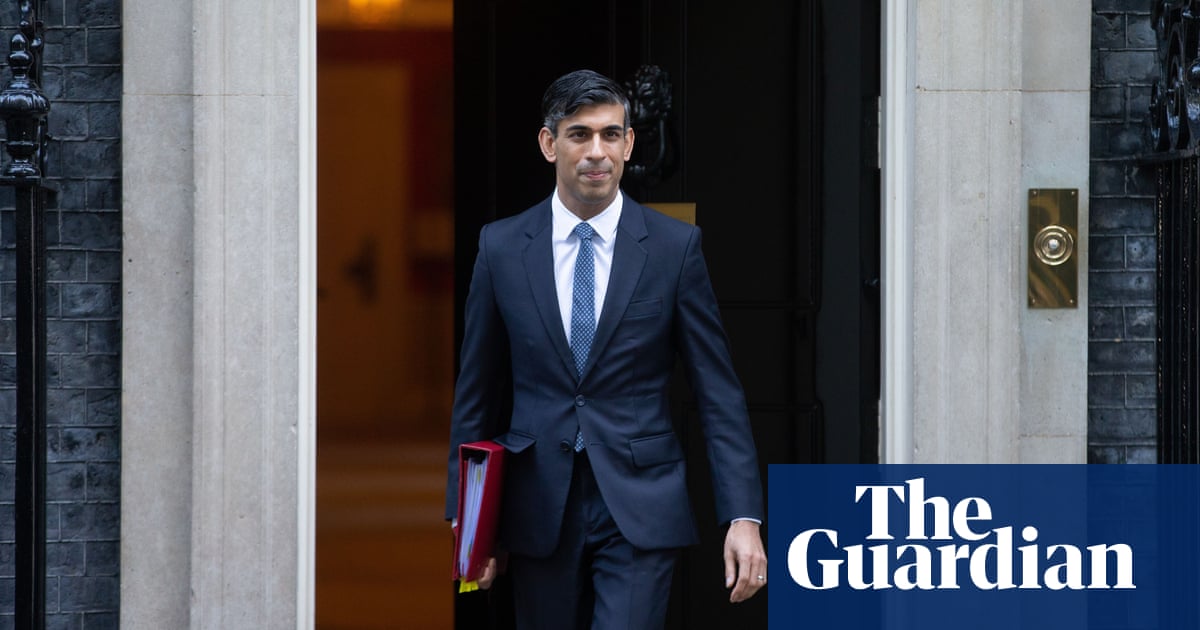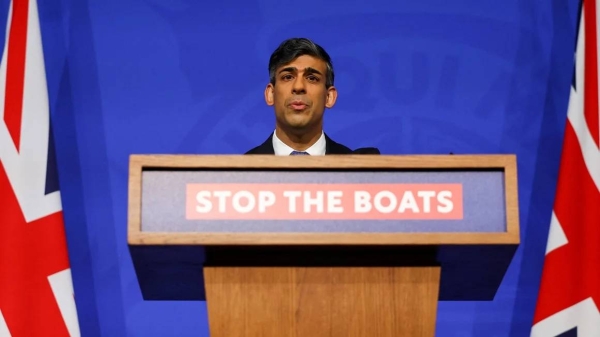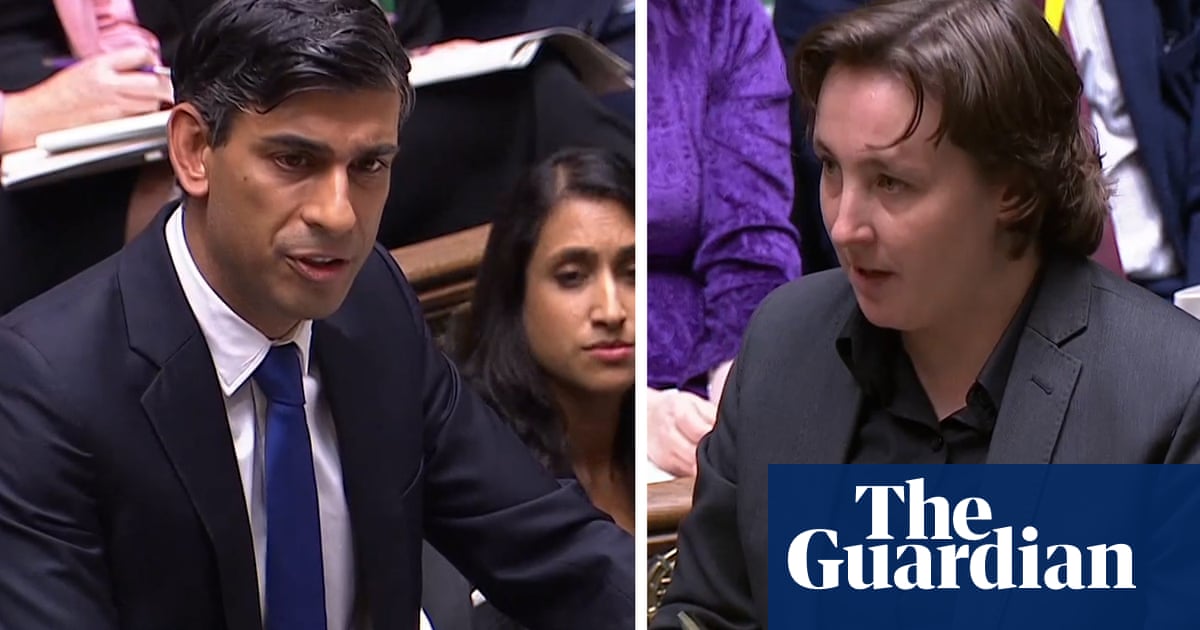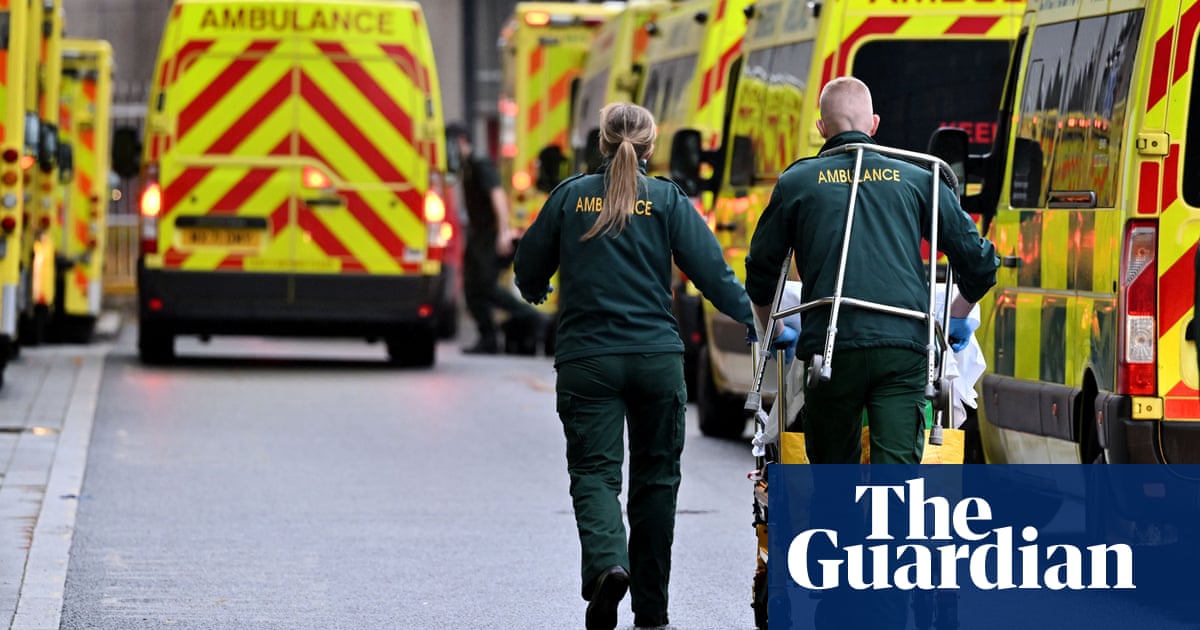
Doctors have accused Rishi Sunak of being “delusional” after he denied the NHS was in crisis and insisted it had the money it needed to cope with the surge in winter illness.
Amid mounting anger over shortages and delays that could be causing unnecessary deaths, doctors and opposition parties reacted with scorn, anger and disbelief to comments made by the prime minister’s official spokesperson at a Downing Street briefing.
Doctors say problems accessing NHS urgent and emergency services could be causing as many as 500 avoidable deaths a week.
Asked if the health service in England was in crisis, the spokesperson indicated that they did not agree and instead said: “This is certainly an unprecedented challenge for the NHS, brought about by a number of factors, most significantly the global pandemic.
“We are confident we are providing the NHS with the funding it needs, as we did throughout the pandemic, to deal with these issues.”
Sunak’s spokesperson acknowledged that many people were having great difficulty trying to see a GP, get an ambulance and seek help in A&E, amid intense pressures on the NHS.
“For a number of people seeking to access the NHS this winter it will be very difficult, because of some of these huge challenges that the pandemic in particular has forced upon us.”
But the spokesperson defended the government’s efforts to prepare the NHS for winter. “What I’m saying is that we recognised well in advance that this would be a challenging winter, and we have sought to put in place a number of measures to mitigate these challenges.”
Dr Vishal Sharma, the chair of the consultants committee at the British Medical Association, which represents most of Britain’s doctors, responded with amazement at the remarks.
“For staff working in the NHS or any patients desperately trying to access care, No 10’s refusal to admit that the NHS is in crisis will seem simply delusional. To try to reassure us that ministers are confident the NHS has all the funding it needs, at a time when families are seeing relatives left in pain at home or on trolleys in hospital, is taking the public for fools.
“Moreover, the attempt to portray this winter’s crisis as the result of the pandemic and not the result of more than a decade of political choices to reduce investment in the NHS and its workforce is little more than an attempt to rewrite history,” said Sharma.
Anyone who seeks care or treatment these days “can see that NHS is quite clearly broken”, he added. Its rapid deterioration “did not happen overnight but is a direct result of the government underspending on health and ignoring repeated warnings from staff about workforce shortages, soaring demand and crumbling infrastructure”, he said.
Dr Adrian Boyle, the head of the body that represents Britain’s A&E doctors, said Sunak’s view that Covid was the main reason for the NHS’s overstretch was “disingenuous”.
Boyle, the president of the Royal College of Emergency Medicine, claimed hospitals could not offer speedy care to the record numbers seeking help amid an upsurge in infections such as flu and Covid because NHS England had not delivered on its pledge to create 7,000 extra beds to help the health service cope this winter. It had provided only 1,742 more by Christmas, Boyle said. The NHS denied the claim, with sources saying the true number was more than 3,000.
Hospitals were struggling because bed numbers had not risen, Boyle said. “I’m concerned that the pledge of 7,000 more beds for this winter hasn’t been delivered because we need the capacity within our hospitals to admit patients. We have these long waits in emergency departments and in the ambulance service because our hospitals are full, because we don’t have enough beds.”
But sources at NHS England said Boyle’s claim was unfair because it had promised to provide the 7,000 beds through a combination of extra beds in hospitals, discharging more patients who are medically fit to leave and increasing the number of the sick who are looked after in “virtual wards”, where they stay at home, their condition is monitored and are visited by health professionals. And the deadline for delivery was March, they said.
On Sunak’s views, Boyle added: “It is disingenuous to blame the current situation on the pandemic. It is beyond doubt that Covid made a bad situation worse, but the structural problems were there long before.
“Emergency care performance has been deteriorating for nearly a decade, which is a consequence of wider staffing issues within the NHS, lack of beds and capacity, and lack of social care – all problems which are due to underresourcing.
An NHS spokesperson said: “These claims are categorically untrue and exclude thousands of additional beds and bed equivalents already delivered by the NHS through investment in community care, discharge, and virtual wards, ahead of the ambition to deliver the equivalent of an extra 7,000 beds by the end of March.”
Dr Kamila Hawthorne, the chair of the Royal College of GPs, joined those rebuking Sunak and also emphasised that the NHS’s inability to do its job was putting patients in danger.
“The NHS is in a terrible crisis. From general practice to emergency departments and right across the NHS, those on the frontline are all saying the same thing – the pressures we’re working under are unsustainable and unsafe for patients.
“The situation the NHS is in, and the impact this is having on patients and frontline staff, must not be downplayed. It must be recognised and addressed.”
Hawthorne and Boyle said the NHS’s problems were fixable if the government commited enough money and brought forward a detailed plan to tackle chronic understaffing.
Opposition parties ridiculed the prime minister. “This is an insult to all those suffering in hospital corridors or in the back of ambulances because the government refused to act sooner. Rishi Sunak is in complete denial about the damage done to the NHS by years of underinvestment and recruitment failures,” said Daisy Cooper, the Liberal Democrats’ health spokesperson.
Wes Streeting, the shadow health secretary, tweeted: “Everything’s ‘quite normal’ in the NHS according to the government. This breathtaking complacency does at least explain why Rishi Sunak and [health secretary] Steve Barclay are nowhere to be seen. Negligent, irresponsible and a risk to the public’s health.”
The NHS Confederation urged ministers to make renewed efforts to avoid the strikes by nurses and ambulance personnel that are due to disrupt NHS care for the next three weeks, starting on 11 January.
“It’s really important that, as ministers return to their desks, that they consider ways of reopening negotiations with the trade unions because four days of strikes on top of the situation we’re in now is the last thing we need,” said Matthew Taylor, the organisation’s chief executive.
At least a dozen NHS trusts in England, including regional ambulance services, were forced to declare a “critical incident” over the festive period because they could not cope with the level of demand for care they were facing.




